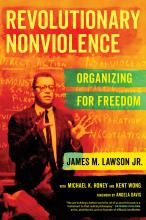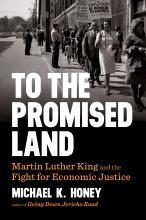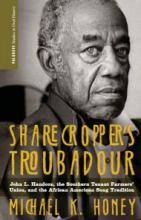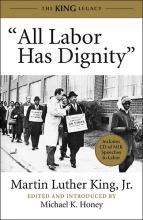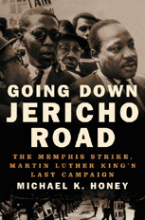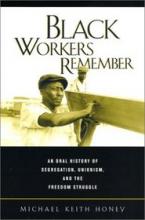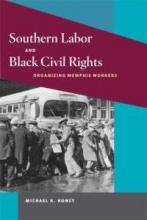Michael Honey’s social movement histories mirror his own social justice commitments as a former civil liberties and civil rights organizer in the South and life-long peace, labor and racial justice activist. His work interweaves songs, photos, film, and oral history into his historical research. Honey has won numerous book awards and written scores of academic chapters, articles, opinion pieces, book reviews, songs, and conference papers, and has received Guggenheim, Rockefeller foundation and numerous humanities center research fellowships for his work. For details, explore this page. Here is a brief summary:
Southern Labor and Black Civil Rights: Organizing Memphis Workers (University of Illinois Press, 1993) opened up a hidden history of interracial southern labor organizing of the 1930s and 1940s that helped set the stage for the civil rights movement of the 1950s and 1960s. Black Workers Remember: An Oral History of Segregation, Unionism, and the Freedom Struggle (University of California Press, 1999) tells the story through the words of black workers in Memphis. Going Down Jericho Road: The Memphis Sanitation Strike, Martin Luther King's Last Campaign (WW Norton, 2007) provides the definitive account of King’s last campaign. In All Labor Has Dignity (Beacon, 2011), Honey collects and edits King’s labor speeches. Sharecropper's Troubadour: John L. Handcox, the Southern Tenant Farmers Union, and the African American Song Tradition (Palgrave Macmillan, 2013), tells labor and civil rights history through oral narrative, historical research, and song.
“Love and Solidarity: James M. Lawson and Nonviolence in the Search for Workers’ Rights,” Honey’s video with Bullfrog Films, carries the story into immigrant rights and labor organizing from 1968 Memphis to Los Angeles in the present. Honey’s current book, To the Promised Land: Martin Luther King and the Fight for Economic Justice (Norton: 2018), traces King’s labor and economic justice struggles throughout his life and raises questions about the economic dimensions of racism. Going Down Jericho Road has been optioned as a major motion picture.

